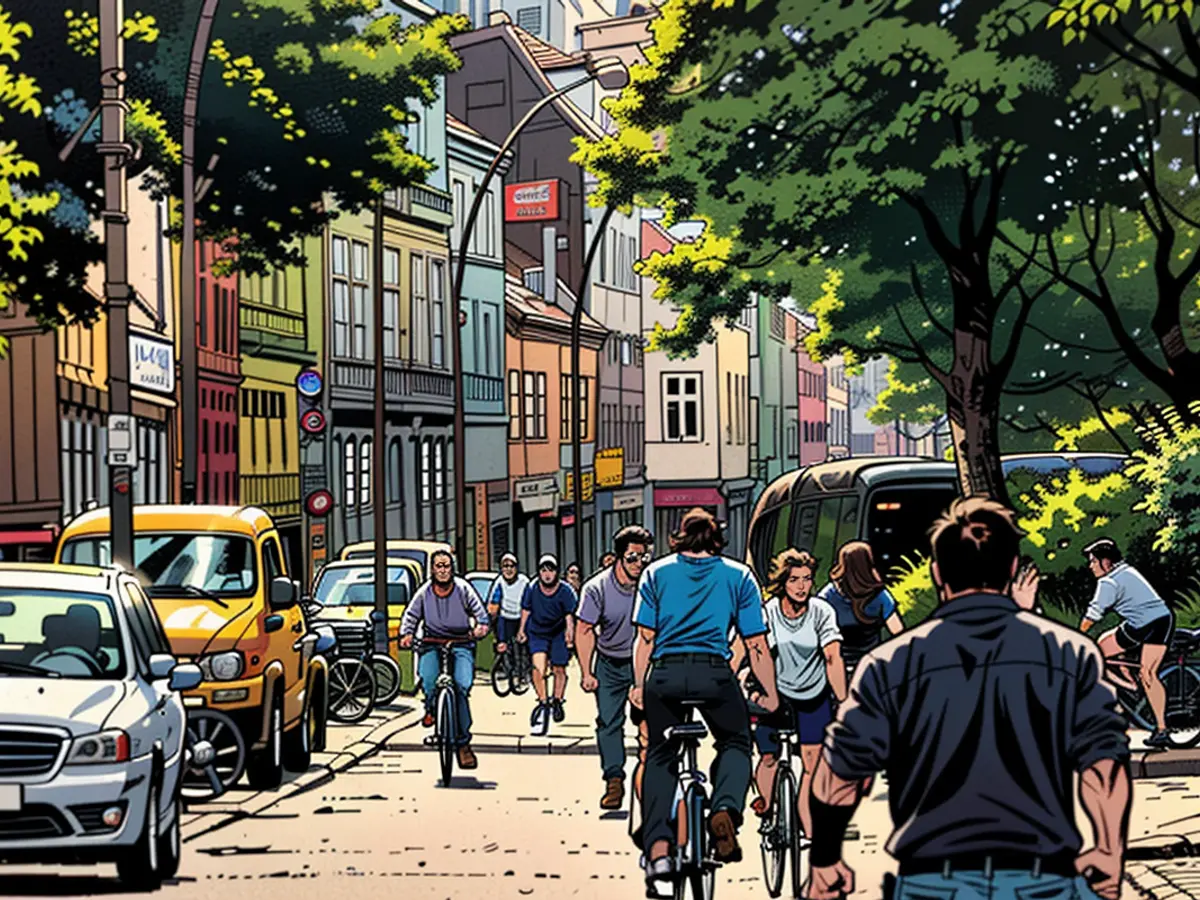Contentious issue over traffic management policy - Enhanced use of public transportation in Hamburg leads to a decline in vehicular and cycling traffic.
More individuals in Hamburg are embracing public transport. The surge in passengers is evident in buses managed by Hochbahn and VHH, as per the traffic agency's report. Conversely, car and bicycle traffic have witnessed a minor decline since the beginning of the year, according to the Senate's response to the CDU's inquiry.
From January to June, car traffic experienced a decline of 3-6% compared to the previous year, with no change in February. On the other hand, bicycle traffic showed a more diverse pattern: A 36% drop in January was followed by a 14% rise in March and a 10% increase in July, compared to the corresponding period the year before.
The Senate attributes the shifting trends in bicycle traffic to varying preferences for different modes of transportation, influenced by weather, leisure activities, and holidays.
"This year was a record-breaker for bus passengers in Hamburg," announced Dennis Krämer, a spokesperson for the traffic agency, to the German Press Agency. "More individuals than ever before have relied on the buses of HVV." In 2022, a total of 321 million passengers were recorded, as compared to about 290 million in 2019 – pre-COVID-19 pandemic.
The positive trend extended to all public transportation services, including U-Bahn, S-Bahn, and vhh.mobility, according to Krämer. In May and June this year, an average of more than 2.7 million passengers were counted on weekdays. The number even reached almost 2.8 million in April, which is approximately 200,000 more than in the previous year.
"The expansion of bus services, including peripheral connections and Xpress bus offerings, alongside the attractive HVV Germany ticket, has boosted demand for S-Bahn, Hochbahn, and VHH," said Mr. Krämer.
The Senate welcomes the slight decrease in bicycle traffic, which has seen a 28% increase from 2019 to 2023. The fact that car traffic remains below pre-COVID levels signifies a shift in mobility habits towards public transportation, walking, and cycling.
However, Dennis Thering, the CDU fraction chairman, holds a contrasting view: "Despite the SPD and Greens' exclusive focus on cycling, there has been a 5% decrease in the first half of 2024. Ultimately, the red-green traffic policy fails everywhere," he stated to the dpa.
"The Germany ticket, which became available last year, provides a significant impetus for switching to public transportation, but the car traffic in the Hanseatic city remains fairly consistent," said Thering. He is unsurprised by the minor decrease, given that over 25,000 more cars have been registered in the city since the commencement of the current legislative period.
In this context, Thering finds the persistent reduction of parking spaces to be "completely illogical" and a safety risk, as the search for parking becomes more challenging with reduced availability. He advocates for a change in traffic policy and equal treatment for all road users. "The majority of Hamburg residents utilize various modes of transportation based on their needs, and a balanced and fair traffic policy should cater to this," said the CDU politician.
Given the rise in bus usage and overall public transport patronage in Hamburg, it's evident that more people are relying on local transport options like Hochbahn and VHH buses. This shift in mobility habits is also reflected in the decline of car and bicycle traffic to some extent.
The increase in bus passengers, coupled with the expansion of bus services and the availability of tickets like the HVV Germany ticket, indicate that local transport plays a significant role in Hamburg's changing mobility landscape.








